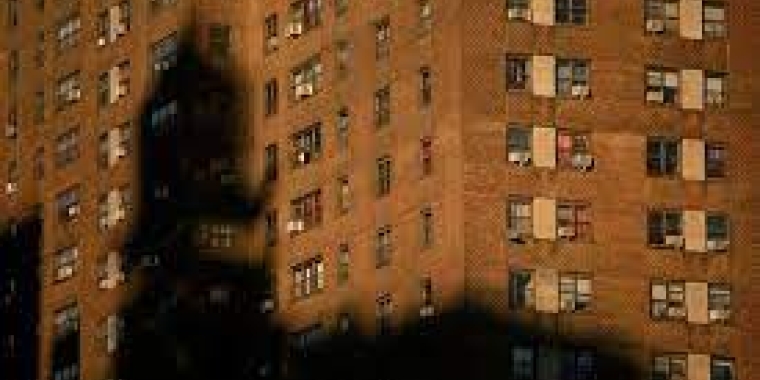NY Times: New Rent Laws Pass in NY: ‘The Pendulum Is Swinging’ Against Landlords

On June 14, 2019, Vivian Wang of the New York Times covered the Housing Stability and Tenant Protection Act, which Senator Kavanagh led the Senate effort to negotiate and pass, and debated on the Senate floor. The bill passed the Senate and the Assembly and was signed into law by Governor Cuomo. The full text of the article is below; the original version is available via the link above.
_______________
New Rent Laws Pass in NY: 'The Pendulum Is Swinging' Against Landlords
By Vivian Wang
June 14, 2019
ALBANY — New York lawmakers on Friday passed a sweeping package of rent laws designed to dramatically enhance tenant protections and reshape the state’s housing landscape, after a months long battle that galvanized tenant activists and dealt a blow to the state’s powerful real estate industry.
The laws signaled a seismic shift not only in the relationship between tenants and landlords, but also in the power balance of Albany, where deep-pocketed developers had long enjoyed access and influence.
“The pendulum is swinging,” Senator Andrea Stewart-Cousins, the leader of the Senate Democratic majority, said on the floor.
Gov. Andrew M. Cuomo signed the package immediately after it was passed by the State Senate and Assembly, both controlled by Democrats.
The laws would immediately transform life for the 2.4 million people who live in roughly one million rent-regulated apartments in New York City, by closing loopholes that have allowed landlords to raise rents or deregulate properties. The existing rent laws were to expire on Saturday.
The legislation’s reach could also extend much farther in the coming weeks: Localities statewide will be allowed to adopt their own rent regulations, which had previously been limited to New York City and a few suburbs.
And other protections, such as limits on security deposits and protections against evictions, would apply to all renters, stabilized or not.
“That is a huge reversal of a decades-long trend toward weaker laws and more loopholes and more ability for landlords to make profits,” said Senator Brian Kavanagh, the Democratic chairman of his chamber’s housing committee.
The real estate industry had lobbied fiercely against the proposed changes, warning that they would discourage landlords from investing in properties and erode thousands of building workers’ and contractors’ jobs. They spent hundreds of thousands of dollars on ad campaigns, hired well-connected lobbyists and pleaded their case directly to Mr. Cuomo and other top state officials.
But their appeals met skepticism, and sometimes outright hostility, from the state’s newly empowered Democrats, who took over the Legislature last year for only the third time in the last half-century.
“For far too long, this Legislature gave landlords the tools to game the system,” said Assemblywoman Jo Anne Simon, a Democrat from Brooklyn, referring to the years of alliance between the industry and Republican lawmakers. “That will no longer be the case.”
The details of the package were announced on Tuesday. In the days afterward, stunned industry leaders pressed Mr. Cuomo and legislators from moderate suburban districts to retool the legislation.
But Mr. Cuomo, a Democrat who has received millions of dollars in real estate contributions and at times disparaged his party’s left wing, rebuffed them. Though the governor has often been a larger-than-life presence in Albany legislative battles, he publicly disengaged from negotiations with lawmakers in the week before the deal was announced, expressing doubt that the Senate could reach an agreement.
In a radio interview on Friday before the bill’s passage, Mr. Cuomo said that developers who thought they would get special treatment because they had donated “don’t know me at all.”
Four Democratic senators, all from Long Island, voted against the bill. But it still passed by a wide margin, 36-26. It passed in the Assembly, where Democrats hold a veto-proof majority, 95-41.
Mr. Cuomo offered measured praise for the final package.
“At the beginning of this legislative session, I called for the most sweeping, aggressive tenant protections in state history,” he said in a statement. “I’m confident the measure passed today is the strongest possible set of reforms that the Legislature was able to pass and are a major step forward for tenants across New York.”
During the floor debate, Republican lawmakers blasted the bill as unnecessary, overbearing and economically catastrophic.
“The housing market will never forget what we did here,” Assemblyman Andy Goodell, a Republican from Western New York, said.
Senator Andrew J. Lanza, who represents Staten Island, blasted a provision that would allow an apartment to remain in regulation even if its tenants earned more than $200,000. Previously, an apartment could be deregulated if the tenant exceeded that income threshold, and the rent exceeded $2,774.
“You’re taking this apartment from someone making $30,000 or $50,000,” he said. “It just doesn’t make sense to me.”
Other changes would limit landlords’ abilities to pass the cost of apartment or building improvements on to tenants; guarantee certain temporary rent discounts; and make the laws permanent, rather than letting them expire every few years.
John H. Banks, the president of the Real Estate Board of New York, said in a statement after the bill’s passage that the changes would reduce tax revenue and discourage the construction of new affordable housing.
“There was a path to responsible reform that could have protected tenants as well as owners, jobs and revenue, but Albany chose not to take it,” he said.
But Republican and industry critiques were significantly outnumbered by celebratory speeches from the Democrats, who told emotional stories of receiving calls from tenants who had been evicted, or even stories of fighting for housing stability themselves. They offered repeated thanks to tenant activists, who had packed the chambers’ galleries.
Ms. Stewart-Cousins, at times choking up with emotion, recounted growing up in public housing and the certainty it had afforded her family.
“If we had to move every week or every month, if we were afraid that tomorrow we weren’t going to have heat,” she said, “I know I would not be here today.”



